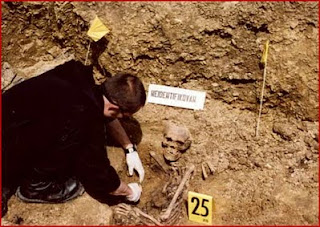Have you ever heard of the statement, “You don’t know where you’re going unless you know where you’ve been”? This statement could possibly be the tag line for Anthropologists.
Anthropologists are known to search around the past to find answers to the present and hope for the future. They study people and society, from our beginnings right through to the current day. They examine all aspects of humanity, from physical characteristics to languages,social behavior and cultures. Tell me this, are you a person that often asks the question, “Why did this happen?” Its a very common question that Anthropologists ask about society, events, etc. In general they ask about why things occur, not to just ask, but to also find out how. You can only imagine the creative side one must have to be successful in this career! A niche in sciences also can really help in order to get to the bottom of a mystery.
We work with students on a daily basis. One question we get often is this: “What can I do with a major in anthropology” (usually followed by a look of disbelief that there would be such an appealing answer that we could come up with). This may be the hard part to wrap one’s head around. Anthropologists work in so many different types of environments from office jobs like GM learning about how employees work together, to research in the dry fields of Africa. Variety is a big bonus in this career. There are also varying areas of study for Anthropologists. Just take a look at this list:
- Sociocultural Anthropology - Seeks to understand the internal logic of societies through ethnography
- Archaeology - Retrieves artifacts from the past and places them in context to understand our history and its relevance for today
- Physical Anthropology - Traces our biological origins, evolutionary development, and genetic diversity
- Linguistic Anthropology - Seeks to explain the very nature of language and its use by humans
- Medical Anthropology - Seeks to better understand factors that influence peoples' health and well being
- Forensic Anthropology - Seeks to identify skeletal, or otherwise decomposed, human remains
- Business Anthropology - Helps businesses gain a better understanding of their activities and customers
- Visual Anthropology - Documents everyday life through film-making
- Environmental Anthropology - Believes that the well-being of the environment goes hand in hand with the well-being of people
- Museum Anthropology - Interprets ethnographic and archaeological collections to the general public
Even just from the list you can already get a sense of the diversity within this career field. It makes the word “limit” seem so insignificant.
Now, with these types of careers there are some basic skills that will be necessary overall. Here are a few:
Skills and Abilities:
Ability to communicate and convey information effectively, active listening skills, critical thinking, reading comprehension through research and related documents, ability to use the scientific method to solve problems; individuals interested in anthropology should understand that as new information becomes available, one should be adept with new skills and stay up to date.
Most Anthropologists are also equipped with these 3 interest areas: Investigative, Enterprising, and Artistic.
Education:
A PhD is the minimum requirement for a college or university position. That takes at least four years of study after your bachelor's degree. A bachelor's degree with a major in anthropology also takes four years and most major universities offer it.
So with all that being said, here are a few sample careers to consider:
Sample Careers for Anthropology majors:
Social Science Policy Analyst
Field Archaeologist
Cultural Resources Manager
Employment equity officer
Conservation/Restoration Technician
Exhibit Assistant
Archaeologist
Professor
Linguist
Historian
Geographer
Museum Curator
Sociologist
Urban Planner
If you are interested in the Anthropology major, check out these other links for more information!

No comments:
Post a Comment